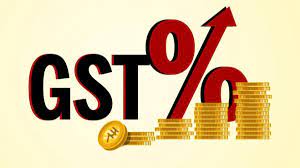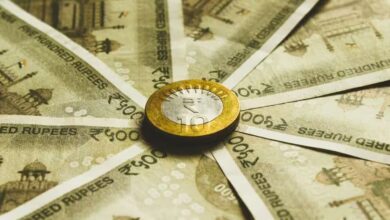GST is exempt for cancer treatment medications and specialty medications
The GST Council exempted cancer treatment medications, specialty medications, and food for medical purposes from the Goods and Services Tax at its 50th meeting on Tuesday, which was chaired by Union Finance Minister Nirmala Sitharaman.
After the lengthy, eight-hour discussion, Sitharaman told a news conference that private companies’ satellite launch services are now also free from taxes.
The Council also determined that the GST rate on food and drinks offered at movie theatres will be decreased to 5% from the previous 18%, she said.
According to the Finance Minister, there would be a GST of 28% applied to all gambling, gambling establishments, and horse racing.
The GoM (group of ministers) was debating whether to apply a 28% GST on platform fees alone or on the face value of bets or total gaming income. She underlined that the tax would be applied to the whole amount.
Without making any distinctions depending on whether the games needed talent or were based on chance, the tax on internet gaming corporations would be enforced.
The tax rate for all three activities, namely casinos, horse races, and internet gambling, would be 28%. In the case of casinos, tax will be charged on the face value of the chips bought, in the case of horse racing, on the entire amount of bets made with the bookmaker or totalizer, and in the case of internet gaming, on the full value of bets placed.
“The GST Council did not want to harm the states that have casinos or the online gambling business. Several states voiced their worries. The moral dilemma of whether we should encourage them more than provide for their basic needs came up throughout the conversation. But I’m pleased to report that the GST Council thoroughly deliberated and comprehended the issue before making a judgement that had been lingering for the previous three years,” Sitharaman added.
Revenue Secretary Sanjay Malhotra clarified that the notification was issued to fulfil the commitment made under the Financial Action Task Force’s (FATF) provisions in response to the question of whether Finance Ministers of Delhi, Punjab, and other states had raised the issue of GSTN’s inclusion under the Prevention of Money Laundering Act (PMLA) ambit.
According to him, this will provide tax officials with additional knowledge regarding tax evasion and money laundering.
Ministers from the aforementioned states expressed uncertainty about whether the GSTN, which receives information, would share information on private companies with other law enforcement organisations like the ED. The ED is not receiving any information and will not release any information under the notice, it was made clear to the states. Only the Director of the Financial Intelligence Unit (FIU) will submit information to the authorities that will allow them to take appropriate action if they believe there have been instances of money laundering or tax evasion.
According to Malhotra, the states were pleased with this justification.
The idea to install GST benches around the nation was also approved by the GST Council. According to Malhotra, the establishment of the GST state benches would take place in stages, starting in the state capitals that already have high court benches.
The GST Council also agreed that a 22 percent compensatory cess would be added on top of the 28 percent GST rate on all multi-utility vehicles (MUVs), including crossover utility vehicles (XUVs) and sports utility vehicles (SUVs).
“It has been decided to amend the entry 52B in the compensation cess notification to include all utility vehicles by whatever name called, provided they meet the requirements of length exceeding 4,000 mm, engine capacity exceeding 1,500 cc, and having ground clearance of 170 mm and above,” the panel stated. It also added an explanation to make it clear that “ground clearance” refers to ground clearance in an unloaded condition.
Sitharaman said that the meeting had merely made it clear that utility vehicles falling under the three aforementioned criteria would be subject to taxation.
Vivek Johri, chairman of the Central Board of Indirect Taxes (CBIC), stated that among other concerns, it was agreed that the private bank account information of the individual applying for GST registration would henceforth be required.
He continued by formalising the biometric authentication pilot programme for GST registration.
The Revenue Secretary said that a total of Rs 17,000 crore in tax fraud was discovered during the taxation department’s campaign against phoney input tax credits.
The GST Council also resolved to reduce the GST rate on a number of commodities, such as uncooked and unfried snack pellets, where the rate was reduced from 18% to 5%. Additionally, GST on fish soluble paste has been lowered from 18 to 5 percent.
GST has been reduced from 12 to 5 percent on fake zari thread.







